Welcome back to WHR You Decide!
We are honored and pleased to announce our next special guest hosts, Julia Benson and Peter Benson creators of Death Do Us Part produced by their firm, Nine Worlds Entertainment, will join us on You Decide Sunday August 12, 2012 8pm Eastern time, 5pm Pacific time to discuss a fascinating human interest topic to all young entertainers, the mentoring of actors by actors, including their strong support of a great organization, Fulfilling Young Artists!
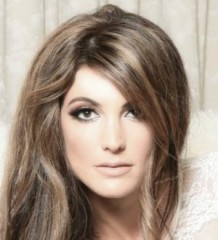 Entertainment industry veterans Julia Benson (Stargate Universe, Stargate Atlantis) and Peter Benson (The Killing, Supernatural) who have brought us years of enjoyable entertainment in television and movies, are passionate about providing guidance to young actors and actresses.
Entertainment industry veterans Julia Benson (Stargate Universe, Stargate Atlantis) and Peter Benson (The Killing, Supernatural) who have brought us years of enjoyable entertainment in television and movies, are passionate about providing guidance to young actors and actresses.
Both are actively involved with the process of mentoring young actors having not only internalized the mission statement of Fulfilling Young Artists to assist young talented actors and actresses achieve their goals in the entertainment industry, but generously volunteer their own time to: 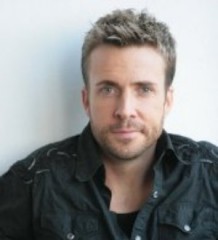
“FYA, … a mentorship program, where young actors are paired with experienced professionals…”
“To aid young artists in their journey towards fulfillment. Through a mentoring process that includes coaching on setting clear tangible goals, participants emerge from our program leading their career with an empowered practice.”
Actors Mentoring Actors:
Traditionally, mentoring has been described as the activities conducted by a person (the mentor) for another person (the mentee) in order to help that other person to do a job more effectively and/or progress in his or her career. The mentor was someone who had “been there, done that” before. Mentoring has been effective in a variety of careers, but where a young person often gets support in college or university, and then by a supervisor in a new career, actors often do not have access to that kind of support.
All actors are freelance workers. Each is, effectively, running his or her own small business with personal skills, talents and abilities as the  product which is offered for sale. And it is that relatively hardnosed approach which, U.K actress, Rebekah Daven Watson, believes, some actors lack. “I was frustrated that despite working hard, ridiculously hard, I was just not getting anywhere, I was working so hard my friendships and relationships suffered as did my health.” She continues: “It wasn’t until I found myself running an Event Planning Business that I realised I’d been going about it the wrong way – I had no plan, no goals, no direction, I was blindly fumbling around getting nowhere fast.”
product which is offered for sale. And it is that relatively hardnosed approach which, U.K actress, Rebekah Daven Watson, believes, some actors lack. “I was frustrated that despite working hard, ridiculously hard, I was just not getting anywhere, I was working so hard my friendships and relationships suffered as did my health.” She continues: “It wasn’t until I found myself running an Event Planning Business that I realised I’d been going about it the wrong way – I had no plan, no goals, no direction, I was blindly fumbling around getting nowhere fast.”
It might help if we begin with an understanding about what mentoring is compared to coaching. Coaching is about behavior, so we can call the type of learning that takes place in coaching “transitional.” It’s about doing things differently. This can mean removing existing behaviors that are not working and replacing with more effective behaviors; or it can mean adjusting or adding to existing behaviors for better effectiveness. So, content and behavior change are some of the characteristics of a coaching relationship.
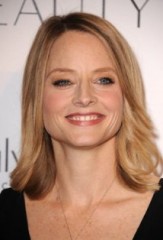 Mentoring involves learning at a deeper level which is why it is called “transformational” learning. It means focusing on changing perspective and gaining a greater awareness of self both as a person and as a professional. This type of learning requires analysis of what is happening and how it impacts the mentoree on multiple levels: personal, emotional, professional, etc. So context and the quality of the relationship are some of the characteristics of a mentoring relationship.
Mentoring involves learning at a deeper level which is why it is called “transformational” learning. It means focusing on changing perspective and gaining a greater awareness of self both as a person and as a professional. This type of learning requires analysis of what is happening and how it impacts the mentoree on multiple levels: personal, emotional, professional, etc. So context and the quality of the relationship are some of the characteristics of a mentoring relationship.
Jodie Foster played a child prostitute in Martin Scorsese’s movie, Taxi Driver.. She was only 12 years old at the time, but had already established herself as a prolific presence in commercials and television. The film took the young star onto the gritty New York City streets opposite the intense and chillingly effective Robert De Niro as the unhinged Travis Bickle. The 33-year-old actor’s methods inspired a career revelation for Foster, who admits she was cocksure when she showed up on set. “I felt like I was the veteran there,” the actress said.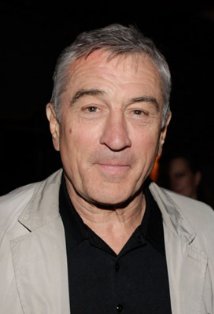
This kind of actor-mentor relationship has been prevalent throughout Hollywood since the Golden Age of cinema. Stars guiding other stars and sharing their wisdom has proven crucial for many now iconic actors who sought to perfect their screen personae. She echoed the same sentiment during her Inside the Actor’s Studio interview. “It hit me like a lightning bolt,” she said of the experience.
“By the time I got the role in Taxi Driver, I’d already made more stuff than De Niro or Martin Scorsese. I’d been working from the time I was three years old. So even though I was only twelve, I felt like I was the veteran there. De Niro took me aside before we started filming. He kept picking me up from my hotel and taking me to different diners. The first time he basically didn’t say anything. He would just, like, mumble. The second time he started to run lines with me, which was pretty boring because I already knew the lines. The third time, he ran lines with me again and now I was really bored. The fourth time, he ran lines with me, but then he started going off on these completely different ideas within the scene, talking about crazy things and asking me to follow in terms of improvisation.So we’d start with the original script and then he’d go off on some tangent and I’d have to follow, and then it was my job to eventually find the space to 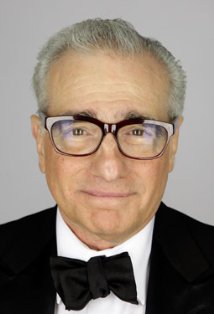 bring him back to the last three lines of the text we’d already learned.
bring him back to the last three lines of the text we’d already learned.
It was a huge revelation for me, because until that moment I thought being an actor was just acting naturally and saying the lines someone else wrote. Nobody had ever asked me to build a character. The only thing they’d ever done to direct me was to say something like ‘Say it faster’ or ‘Say it slower.’ So it was a whole new feeling for me, because I realized acting was not a dumb job. You know, I thought it was a dumb job. Somebody else writes something and then you repeat it. Like, how dumb is that? There was this moment, in some diner somewhere, when I realized for the first time that it was me who hadn’t brought enough to the table. And I felt this excitement where you’re all sweaty and you can’t eat and you can’t sleep. It changed my life.”
Actor Richard Dreyfuss spoke about mentoring from the other side: “Giving back, or being part of a community, and sensing your obligation or sensing the weave of community, is not only a good and decent thing, it’s been the goal of western civilization for 5,000 years. It shouldn’t be thought of as something extraordinary. It should be thought of as business as usual. On an individual basis, it’s fun. It’s fun to see the light in someone’s eyes. It’s fun to give your own eccentric experience and have it land. 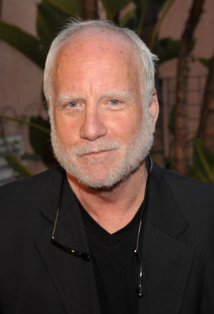 That’s fun. And you live longer. You live in their thought, and their thought, and their thought. For whatever reason that we fear death, it’s always nicer to think, someone will be thinking of me in 200 years, or someone will be thinking my thought. Or I will have contributed to that thought that still lives.”
That’s fun. And you live longer. You live in their thought, and their thought, and their thought. For whatever reason that we fear death, it’s always nicer to think, someone will be thinking of me in 200 years, or someone will be thinking my thought. Or I will have contributed to that thought that still lives.”
“We do what we got to do, so we can do what we want to do.”-Denzel Washington
Kunal Nayyar who portrays Rajesh Koothrappali on “The Big Bang Theory.“ Shares his experiences: “[Two teachers have been the most influential.] One was [at University of Portland], the first teacher ever who taught me acting: Mindi Logan. Right from the beginning, she taught me the importance of the basics: circumstances, objectives, actions, and all that. And I still use that to this day. Sometimes when I’m stuck on something, I’ll just go back to the basics, like what’s happening, what is my obstacle, what is my objective, how can I make this more interesting.
And the other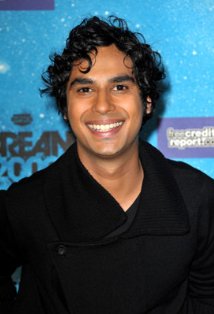 was at Temple University, my senior year: Doug Wager, who ran Arena Stage for 20 years. He was the one who really unlocked my physical potential, and he was always encouraging because he had lived in Los Angeles, where he ran a TV show on AMC called “The Lot.” He was instrumental in my understanding of what it takes to be a professional actor and my belief that I could be a professional actor—that I’m good enough to be out there with everyone. All I needed was the belief that I belonged, that I could come out to Los Angeles and have success.”
was at Temple University, my senior year: Doug Wager, who ran Arena Stage for 20 years. He was the one who really unlocked my physical potential, and he was always encouraging because he had lived in Los Angeles, where he ran a TV show on AMC called “The Lot.” He was instrumental in my understanding of what it takes to be a professional actor and my belief that I could be a professional actor—that I’m good enough to be out there with everyone. All I needed was the belief that I belonged, that I could come out to Los Angeles and have success.”
Mentorship is more necessary in the entertainment industry than in other fields, due to the less likely level of formal, affordable and accredited education. Actors with a desire for long term success understanding that learning never ends. If you want to be a television and film actor, you have to seek out the actor who has been on tv shows and in feature films and hear their story. A lot of people are afraid to ask, but people want to share their stories and give advice. Making it as an actor is not an easy thing and for those who have made it are proud of their accomplishments. Those who never ask will be the ones who will always wonder, what if…
 Thanks to Kenn for final staging of the audio and images in this news article and thanks to you for stopping by WormholeRiders News Agency!!
Thanks to Kenn for final staging of the audio and images in this news article and thanks to you for stopping by WormholeRiders News Agency!!
We look forward to seeing you for our exclusive interview with Joe Mallozzi this Sunday 5 PM PST 8 PM EST!
Please feel free to leave a comment here, click an icon below to share this interview with your friends, or you can visit and follow me on Twitter by clicking on my avatar to the right.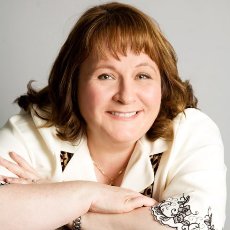
Regards,
Thank you.
ArcticGoddess1 (Patricia)

Happy Saturday Patricia!
Thank you for arranging this wonderful interview with Ms. Julia Benson and Mr. Peter Benson of Nine Worlds Entertainment! The subject of mentoring is so important in so many areas of life including acting.
Great work on your feature article research! Thanks again.
Best Regards,
Kenn